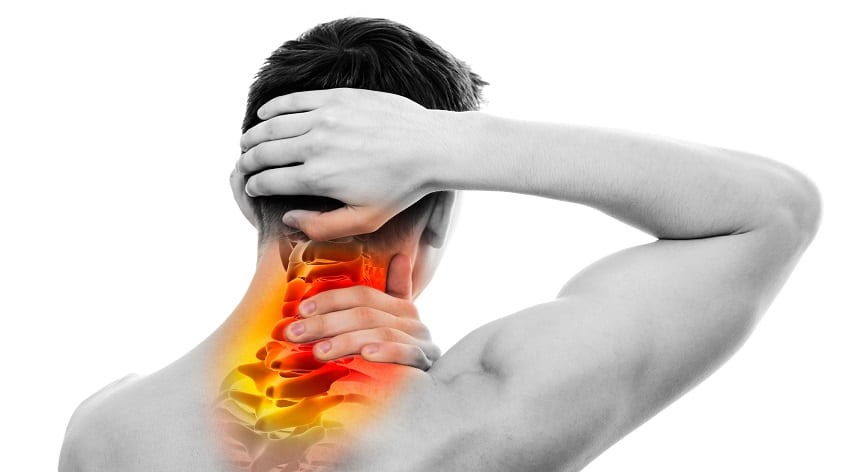What Are the Different Types of Neck Pain?

Have you noticed a sharp pain in the back of your neck?
It’s more common than you might think. But if this is the first time you’re experiencing neck pain, don’t worry. There’s no need to worry about scoping out doctors and specialists just yet.
First, it’s best to understand what could be the cause of the pain. So what kinds of neck issues exist?
You’ll find out here! We’ll tell you about the different types of neck pain you might find yourself with. After that, we’ll give you some advice on how to tackle them.
Read on!
Table of Contents
ToggleThe Different Types of Neck Pain
Neck pain is an all-too-common occurrence in both adolescents and adults. Neck pain can range from a mild and constant ache to an intense and stabbing sensation. These aches and pains can be divided into several different types.
Acute Neck Pain
Acute neck pain refers to sudden and intense neck pain that may be caused by an accident, an overextended motion, or sudden and intense movement. Acute neck pain is usually caused by an acute injury and can be severe enough to cause you to seek medical attention.
Symptoms of acute neck pain can include pain in the neck, tenderness, and swelling in the neck. This also includes muscle spasms in the neck, weakness in the arms or legs, and decreased range of movement.
Chronic Neck Pain
Chronic neck pain is a type of neck pain that persists for long periods of time and may never truly go away. Causes of chronic neck pain can include repetitive activities, poor posture, sprains, and strains, as well as whiplash and illnesses like arthritis, spondylosis, and cervical spondylosis.
Types of chronic neck pain can vary. It can range from a dull ache to sharp, shooting pains. It can be accompanied by stiffness and/or tenderness in the neck and shoulders.
Some of the most common types of chronic neck pain are tension headaches, cervicogenic headaches, and myofascial pain syndrome.
Mechanical Neck Pain
Neck pain caused by mechanical problems is one of the most common types of neck pain. Most mechanical problems are caused by things like bad posture, playing sports or taking part in them, or moving heavy things.
Symptoms of mechanical neck pain may include stiffness, tension, or aching in the neck region as well as difficulty in turning and bending the neck, affected range of motion in the neck, and headaches. Even radiating pain into the arms and shoulders.
Mechanical neck pain may also be due to sleeping on an uneven pillow and degenerating discs in the spine. It can also be the inflammation of a tendon or muscle, injury to the intervertebral joints, or a herniated disc pressing on the spinal nerve.
For mechanical neck pain, you can rest and fix your posture, use hot or cold packs, get a massage, or go to physical therapy as well as avoidance of activities that aggravate symptoms.
Cervicalgia
Cervicalgia is a type of neck pain that occurs in the cervical spine area of the neck. It is a type of neck pain that can be localized to one spot or spread to other parts of the body, such as the upper back, arms, or even the head.
The pain may be dull and achy with no obvious identifiable cause, or it could be caused by injury, degenerative changes of the spine, or poor posture. The symptoms typically include muscle spasms, restricted movement, and a burning sensation. Or it can be an intense radiating or sharp pain in the neck and/or shoulders.
Treatment often includes physical therapy and medications. This includes non-steroidal anti-inflammatory drugs, muscle relaxants, and/or cortisone shots. Additionally, proper ergonomics and lifestyle modifications. Exercises, such as stretching and building muscle, can help ease the pain of cervicalgia.
Radiculopathy
Radiculopathy is a type of neck pain caused by nerve root irritation. The root of a nerve is the point at which it branches off the spinal cord. Symptoms of radiculopathy can include pain, numbness, or tingling in the neck, shoulder, arms, or head.
The pain can vary from a brief, sharp sensation to a persistent, burning sensation. To fix the cause of the pain, doctors may suggest physical therapy, medicines like anti-inflammatory drugs, or, in some cases, surgery.
Traumatic Neck Pain
Traumatic neck pain is neck pain that is caused by an injury, such as a physical blow or an accident. This type of neck pain can range from mild to severe, depending on the severity of the injury or trauma.
Symptoms of traumatic neck pain may include a constant or severe ache in the shoulder, neck, or upper back area. Other common symptoms may include difficulty looking up and down, difficulty moving the neck, swelling as well as tenderness in the neck, nausea, headaches, and in extreme cases, numbness, tingling, and weakness in the arms or legs.
Traumatic neck pain may require medical treatment. Depending on how bad the injury is, this could mean physical treatment, immobilization, a neck brace, or painkillers. It is important to get medical attention when experiencing neck pain after any sort of trauma in order to catch and treat any underlying issues.
Facet Joint Disfunction
Neck pain can vary greatly in intensity, as well as its source. Facet joint dysfunction is a common type of neck pain that can be caused by trauma, such as whiplash, or from years of poor posture, straining the joints and ligaments.
Pain from facet joint dysfunction is often described as a sharp, burning sensation that radiates from the cervical spine (neck) area down the shoulder and upper back.
Symptoms can also include stiffness, loss of range of motion, headaches, and general tenderness in the area.
Whiplash Injuries
Neck pain is commonly caused by both major and minor traumas, such as whiplash injuries. Whiplash is a type of neck injury caused by damage to the soft tissue of the neck due to abrupt and violent jerking motions.
It is generally associated with auto accidents but can also result from falls, sports injuries, or other types of accidents. Neck pain due to whiplash often ranges from mild discomfort to debilitating pain.
It can be localized to the neck or spread to the shoulders or arms. Signs and symptoms include headaches, dizziness, fatigue, numbness or tingling, and jaw pain.
Common Treatments
Common treatments for each type of neck pain may include physical therapy and medications. This includes muscle relaxers or painkillers, chiropractic care, injections, and massage.
In severe cases, surgery may be necessary to relieve severe neck pain.
Nonsteroidal Anti-inflammatory Drugs
Nonsteroidal anti-inflammatory drugs, or NSAIDs, are a type of drug used to treat neck pain. These drugs reduce inflammation of the soft tissues of the neck which can cause pain, soreness, and discomfort.
They can be over-the-counter NSAIDs or prescription-strength drugs. Over-the-counter options include aspirin, ibuprofen, and naproxen. Prescription NSAIDs are stronger. It may contain celecoxib or meloxicam, stronger over-the-counter medicines for neck pain relief.
Muscle Relaxants
Different types of muscle relaxants can be used to treat neck pain or tension. Muscle relaxants are in a lot of over-the-counter medicines, which can help with neck pain caused by light muscle strains.
But when neck pain is due to chronic neck pain or other more serious conditions, prescription muscle relaxants may be necessary.
Physical Therapy Exercises
Physical therapy exercises can help relieve neck pain by strengthening the muscles that support the neck. This improves range-of-motion and flexibility and decreases tension and muscle spasms.
For rare neck pain, it’s best to do exercises like stretches, rotations, and flexion/extension. This is to loosen up tight muscles and keep the neck flexible.
Physical therapists may recommend a series of exercises to strengthen the neck to avoid and treat chronic neck pain. This helps to strengthen the underlying muscles and joints. Posture adjustment exercises, mobility exercises, and massage can also be used to reduce pain and improve the health of the neck as a whole.
Chiropractic Care
Chiropractic treatment for neck pain may include spinal manipulation and adjustment, massage, ultrasound therapy, and ice/heat packs. This local chiropractor can help bring realignment of the vertebra in the neck through spinal manipulation, releasing any tension and pressure in the muscles and nerves in the area.
Other treatments may be recommended on a case-by-case basis, depending on the cause of the neck pain and individual needs. Regular chiropractic care can help reduce and prevent neck pain, as well as other musculoskeletal issues.
Surgery
Depending on the underlying cause of the pain, neck surgery may be considered a possible therapeutic option. Surgery is typically recommended when neck pain is caused by a herniated disc, spinal stenosis, or degenerative disease.
Each of these conditions can cause compression of spinal nerves, leading to severe pain and other symptoms such as numbness and tingling in the neck and down the arms or legs. After being deemed medically necessary and a plan of treatment has been developed, the type of neck surgery performed is dependent on the patient’s unique anatomy and condition.
Common Types of Neck Pain You Should Know
Neck pain can be caused by many different causes and can be difficult to diagnose without professional help. Learning the different types of neck pain and the potential treatments available can help you find relief.
If you suspect you may have a neck injury or ailment, make an appointment with your doctor to find a treatment plan that works best for you.
For more informative topics, check out the rest of our site.
Pankaj Majumder, a seasoned Civil Engineer, combines technical expertise with a passion for innovative infrastructure solutions. With a strong academic background and diverse project experience, he excels in creating sustainable and resilient structures that shape the future of urban development.
Recommended For You
Spread the loveDental implants are one of the most reliable and long-lasting solutions for replacing missing teeth. But unlike quick
Spread the loveYou’ve tried whitening toothpastes, strips, and DIY kits—but your smile still doesn’t have that fresh, radiant glow. Sound
Spread the loveIt’s a quiet Sunday afternoon, and suddenly, you hear a loud crash followed by your child’s cry. You



